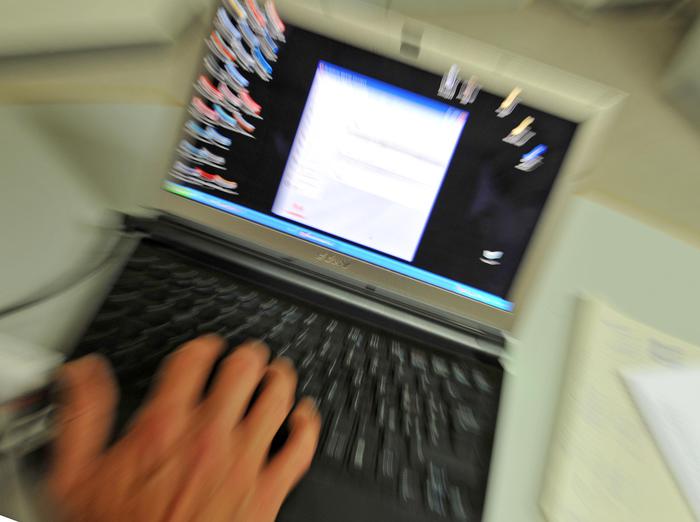Enlarge image
"Headshot!"
“You are a very sick, miserable cunt.
Mask you fascist. "
These are just two of the countless hateful messages that SPIEGEL readers like professional musician Tommy or influencers like Louisa Dellert receive on the internet every day.
How the hostility escalated further and further during the corona pandemic, the two and many other victims told SPIEGEL editor Rachelle Pouplier for a video report.
Politicians like the SPD health expert Karl Lauterbach have also been attacked to an unprecedented extent since the outbreak of the pandemic - on the Internet, but also in real life. Lauterbach reported this at a virtual SPIEGEL event. "It is the first time that I have the feeling that there are really violent people here who are threatening me and my family in a way I have never seen before." A few days later he tweeted that there were strangers Car attacked with a paint bucket.
Digital hatred, but also the spread of fake news and disinformation campaigns on the internet did not only take on threatening proportions during the corona crisis - that is the depressing first conclusion of the SPIEGEL project Republic 21. But we as a society are not helpless in the fight against shitstorms and fake news and hatspeech. Our research and discussions with experts, politicians and readers have shown that too.
As a reminder: At Republic 21, SPIEGEL will be devoting itself to the major political issues of our time until the federal election - and inviting its readers to join the discussion.
In forums, in video reports and podcasts, in question and answer sessions with editors on Instagram and on the SPIEGEL website and also at virtual events with celebrities and politicians, to which we exclusively invite subscribers.
The first question the project addressed was:
How do we want to talk to each other?
Many of our interlocutors stated that the culture of debate on the Internet had continued to suffer with the corona crisis, and was partly derailed.
In addition, the hatred has long since spread to real life.
"For women and migrant groups, digital hatred often has real consequences," said our colleague Pouplier after her research. Many feel left alone. The comedy writer Jasmina Kuhnke, for example, even had to move because people found their private address and harassed and threatened Kuhnke's family on site. But children and young people also want more support, "for example from schools," says Pouplier.
Josephine Ballon, attorney at the aid organization HateAid, encouraged people to seek help from advice centers in various Republic 21 formats and to consistently file criminal charges against aggressive online attacks. "Because that's the only way they end up in the statistics," says Ballon. If a perpetrator is identified, those affected can use civil law to demand that certain statements be deleted and, under certain circumstances, even sue for damages.
Every citizen can also counter the spread of fake news. The journalist and fake news expert Ingrid Brodnig recommended during a discussion in the SPIEGEL community that potential false reports could be sent to the fact check websites Mimikama.at or correctiv.org. SPIEGEL is also a point of contact if a targeted false report reaches a certain range, added SPIEGEL editor Ann-Katrin Müller in the chat: "We would then take a look at the purpose for which that false message is distributed."
Unfortunately, it is not always easy to identify fake news, fake photos or manipulated audio and video news, said voice-catching reporter Marius Mestermann while researching his latest voice-catching podcast.
Targeted and very cleverly made digital disinformation campaigns have long been a problem in world politics.
And even if, for example, images are recognized as fake and deleted from the original page: Once online, it spreads uncontrollably.
This is shown by a manipulated photo of a Fridays for Future demonstration.
Someone had put messages like "Electricity and gasoline are not expensive enough" on their posters.
An AfD district association posted the changed photo on its page and later deleted it - but it continues to circulate online.
It is all the more important as a user to deal critically with information, Mestermann states.
Especially when they are totally surprising, unlikely, and come from an unknown source.
With these findings, SPIEGEL is now asking itself and its readers the next key question in the Republic 21 project:
How will Germany become fairer?
Discuss with us!
For example today at 5 p.m. in the SPIEGEL Arena.







/cloudfront-eu-central-1.images.arcpublishing.com/prisa/ELHCUHQRSFERVA3HKYGKZVLACM.jpg)
